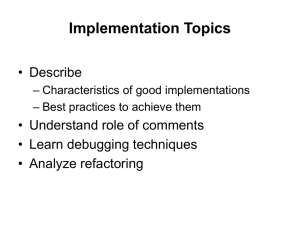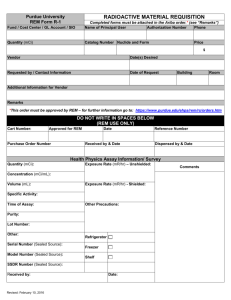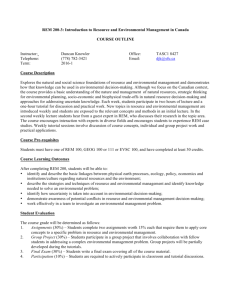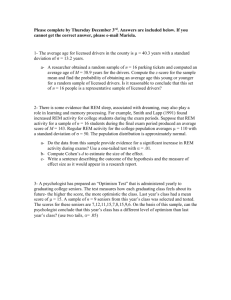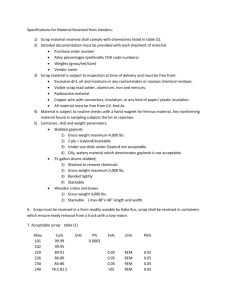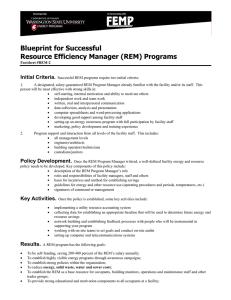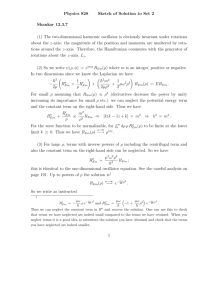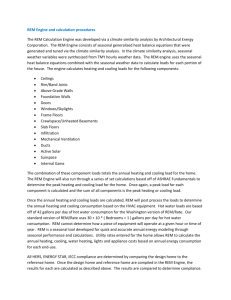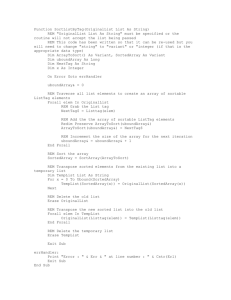Commands in QBasic
advertisement
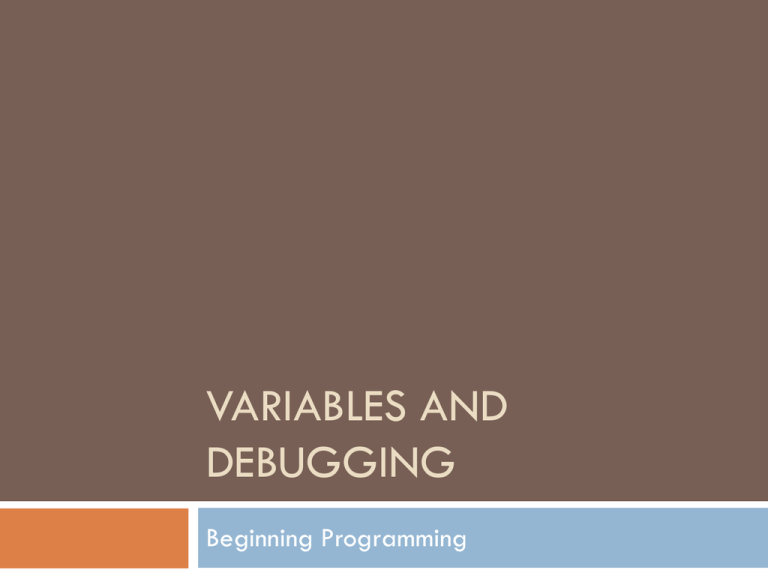
VARIABLES AND DEBUGGING Beginning Programming Assignment Statements Used to hold values in a variable Calculates a result and stores it in a variable Variable: used to hold values in a program Should describe what it holds Starts with a letter Cannot use spaces Can only use _ , $ , and . Cannot use reserved words (such as RUN, NEW, PRINT, etc.) Should end a string (a sequence of characters enclosed in quotation marks) with $ Variable Naming Good Naming Examples FRUIT$ POOL.LENGTH LAST_NAME$ BIRTHDATE$ AGE Poor Naming Examples 1FRUIT$ F$ FRUIT TYPE$ FRUIT*$ NEWFRUIT$ FRUIT Practice Complete the Creating Descriptive Variable names worksheet Complete the Storage Location Worksheet Commenting Variables in REM Statements You need to list every variable that you use in the program in your REM Statements You will put there in the Variable Declaration section of the REM Template You should list the variable name and then describe what the variable stands for Example: REM POOL.LENGTH holds the length of the pool in feet REM TEACHER_NAME$ holds the teachers first and last name Assignment Complete REM and Variable Practice Worksheet Using Variables in the Main Program To set the value of a variable, use the command LET Examples: LET Stage.Length = 5 LET Subject_Name$ = “Algebra” You can also set the value of the variable without the word LET Examples: Stage.Length =5 Subject_Name$ = “Algebra” Using Variables in Processes You will want to use variable names when solving equations Example LET #1: Length = 5 LET Width = 4 LET Height = 3 LET Volume = Length * Width * Height PRINT “The volume is “; Volume; “.” Using Variables in Processes You will want to use variable names when solving equations Example LET #2: First.Name$ = “Bob” LET Last.Name$ = “Smith” Customer.Name$ = First.Name$ + “ “ + Last.Name PRINT “The customer’s name is “; Customer.Name$ Some important facts Try to use variables whenever you can and have the computer solve mathematical equations for you, rather than solving them yourself. If you solve them yourself and just enter the answer, you will have to do it all over again if you want to run the program with different input numbers. In PRINT statements, remember to separate the parts in quotations with the variables not in quotations with a ; Assignment Program #4A Debugging Debugging: Figuring out the errors in a program There are 2 types: Syntax Most common error Programmer violates the grammatical rules of Qbasic Error message will be displayed at bottom of screen Logical Errors Errors Program may stop executing prematurely Program may execute completely, but produce incorrect results Mathematical errors Formatting errors Debugging Practice 1. 2. Debugging exercise #1 – complete and we will go over as a class Debugging exercise #2 – complete and turn in for a grade
